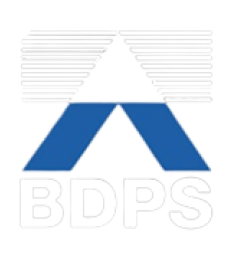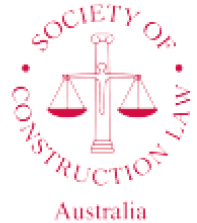Thurin v Krongold Constructions (Aust) Pty Ltd [2024] VSC 42
Background
In the recent case of Thurin v Krongold Constructions (Aust) Pty Ltd [2024] VSC 42 (Thurin v Krongold), the Victorian Supreme Court has clarified the court’s authority to extend a limitation period in a VCAT proceeding that has been referred.
In this turbulent journey through VCAT, the latest chapter in the Thurin v Krongold dispute has seen waters tested and fresh legal issues raised. With its long history, it has developed as primary case law regarding case transferrals from VCAT to the courts, under s77 of the Victorian Civil and Administrative Tribunal Act 1998 (Vic) (VCAT Act).
Facts
The dispute between Thurin and Krongold has been a continuous and evolving case since 2006. The events that prompted such a long-winding and arduous court journey concerned claims of defective building work done by Krongold Constructions (Aust) Pty Ltd to the Thurin’s Toorak home. With damages estimated to cost $3.5m, the Thurins faced a refusal from Krongold to engage in any restitution.
Since the incident, the case has evolved to raise questions about VCAT’s suitability as the forum, its jurisdiction over federal law, s77 applications for transferring VCAT cases to a court, time constraints for such applications, and the transfer of joinders from VCAT to a court under s77.
As we saw in Krongold v Thurin [2023] VSCA 191[1], three principles were set out:
- Referral of a VCAT case to the Supreme Court under section 77, when involving federal law, does not require starting a new case; proceedings continue from VCAT.
- Referral under s77 does not trigger time limits under the Building Act 1993 (Vic) (Building Act); these limits apply only to new proceedings, not continuations.
- Thurin and Krongold had made contribution and apportionment claims against third parties to the case, Casper Architecture and Design Pty Ltd (Casper) and Swan Hardware & Staff Pty Ltd (Swan Hardware). However, VCAT lacked authority to refer these joinders to the Supreme Court due to their original joinder in VCAT involving federal law (e.g. the Trade Practices Act 1974(Cth)), invalidating the process under s77.
As explained above, the joinders did not form part of the referral to the Court under s77. With the recent introduction of the Justice Legislation Amendment Act 2023 (Amendment Act) (Vic), however, such issues could be rectified. The Amendment Act made changes to s77 of the VCAT Act, where, under s77(4), it permitted a court to extend any limitation period that applies to the commencement of a proceeding in relation to a matter referred by VCAT to a court, subject to certain conditions.
S77(4) sets out that:
If the Tribunal refers a matter to a court under subsection (3), the court may extend any limitation period that applies to the commencement of a proceeding in relation to that matter so as to allow the proceeding to be commenced and determined, if the court is satisfied that—
- the proceeding involves the same subject matter as a proceeding in the Tribunal that was struck out under subsection (1) on the ground, or on grounds that included, that the Tribunal lacked jurisdiction to exercise judicial power to resolve controversies involving federal subject matterwithin the meaning of section 57A(1); and
- (b) the late commencement of the proceeding is attributable to additional steps the person commencing it was required to take to have it determined by the court because the Tribunal proceeding was struck out; and[2]
(c) it is fair and reasonable to extend the limitation period.
Issue
The issue at hand revolved around the court’s authority to grant an extension of the time limit for Thurin’s and Krongold’s claims against the original co-defendants, Casper and Swan Hardware. The 2023 case highlighted the invalidity of referring the co-defendants to the court within the entire proceeding due to its involvement with federal law. With the enactment of the Amendment Act, this issue could now be reconsidered, with a focus on the interpretation of the legislative term ‘matter.’
Casper argued for a narrow interpretation of section 77(4), suggesting that a court’s authority to extend a limitation period only applies to the extent of the ‘matter’ that was validly referred to the court, and contended that this did not encompass the original, invalid joinders to the VCAT proceeding. They argued that, according to s134 and s134A of the Building Act, their joinder to the court case now would be time barred.
The Thurins and Krongolds contended for a broader interpretation. They argued that the time limitation should be extended for all claims forming part of the ‘matter,’ regardless of if such an aspect was made with an invalid exercise of power in the first place. Therefore, the ‘matter’ should extend to all aspects in the justiciable controversy, i.e., the controversy that has been brought before VCAT, whether or not there was jurisdiction for VCAT to hear it.
Ruling
With consideration to both arguments, and to extrinsic material such as the explanatory memorandum, the judge determined that it was equitable to extend the limitation period and include Swan Hardware and Casper as defendants in the court proceeding, reinstating the parties positions as they were during the VCAT proceedings.
Confirming the interpretations put forth by Thurin and Krongold, the understanding of ‘matter’ referred to the justiciable controversy between the parties, irrespective of VCAT’s jurisdictional constraints. This approach was deemed fair and reasonable under section 77(4)(c), especially considering factors like the active involvement of the parties in the original VCAT proceeding, their necessity to the case, and their similar subject matter. The court dismissed Casper’s argument about the time limitations for joinders outlined in the Building Act, asserting that section 77(4) was explicitly intended by Parliament to apply to building matters such as the present case, where overcoming time barriers outlined in sections 134 and 134AA of the Building Act is necessary.
Implications for future cases
The interpretation of section 77(4) in this case has the potential to set a significant precedent, streamlining the process for similar cases in the future. With this introduction and utilisation of the Amendment Act, there is a notable enhancement in access to justice, particularly in navigating technical and jurisdictional complexities within legal forums.
For more information, please contact Warlows Legal using the contact information below.
[1] [If you would like a more in-depth analysis, head on over to our recent article on this decision at https://warlowslegal.com.au/krongold-v-thurin-more-legal-implications-for-vcat/#_ftn1
[2] S77(4)(b) has since been repealed




